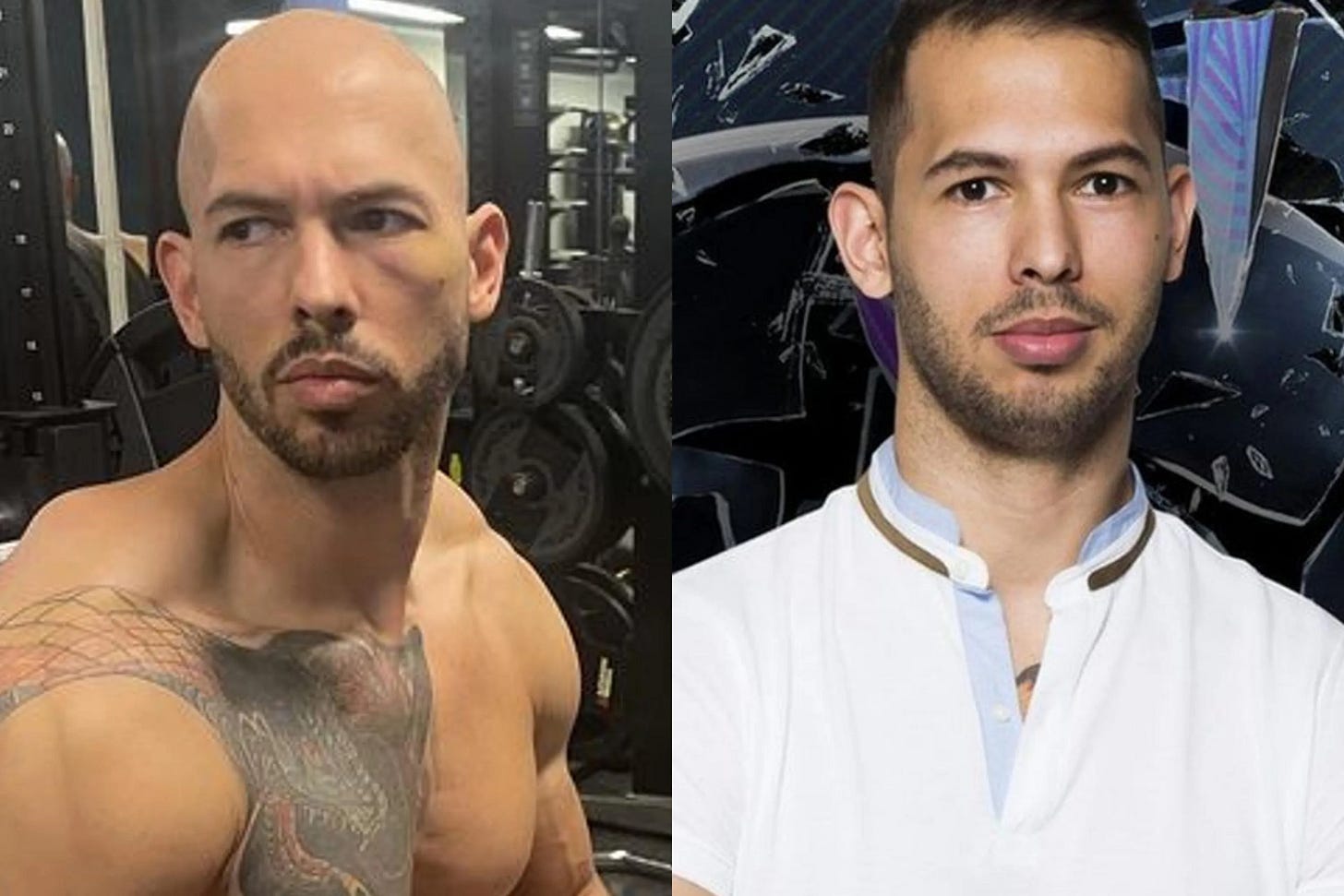Hate the Tate
Andrew Tate is a self-described "success coach" who has been banned from Twitter, Instagram, Facebook, TikTok, and YouTube all within 48 hours.
These tech giants have said it’s because…
Meta: “He violated the company's polices on dangerous organizations and individuals.”
TikTok: "Misogyny is a hateful ideology that is not tolerated on TikTok.”
YouTube: “We terminated channels associated with Andrew Tate for multiple violations of our Community Guidelines and Terms of Service, including our hate speech policy.”
Andrew Tate’s defense can be summed up as: They just jokes, bro.
Leftists are cheerleading his downfall because they disagree with his “hot takes,” his potential pyramid scheme business model, and an ongoing investigation into s*xual assault allegations, but for me, I couldn’t give a flying roundhouse kick about Andrew Tate. I’ve never seen one of his videos. What I care about is my freedom!
Big Tech conspiring together with its groupthink approach to moderation policy poses a much greater threat to my freedom than what ABC says about XYZ.
“THEY PRIVATE COMPANIES THO?!”
Yes, they have the legal right to remove him just as I have the legal right to complain about it.
The point of my complaining is to raise awareness about two distressing interconnected trends: the centralization of power and political intolerance.
By making you a bit more pro-freedom then you’ll make Big Tech a bit more pro-freedom too.
“BUT WHAT ABOUT HATE AND MISINFORMATION?!”
Everyone “hates” and is misinformed.
Leftists hate Tate.
Leftists think we can “get money out of politics,” while cheerleading oligarchs for removing politically incorrect speech. The truth is money has never been nor ever will be out of politics.
This isn’t to say Andrew Tate should run wild all over our feeds, but what if we lived in a digital world where instead of elevating him for sensationalism to then just ban him for it… we lived in a digital world where our feeds were open-sourced and more user-controlled? I had never subscribed to him yet several of his videos popped up on my YouTube feed the past month.
What if instead of taking down opinions for being “misleading” or “hateful” we just gave users the ability to opt into fact-checkers who are up-front about their bias (everyone has bias) whereby they have the power to label and remove posts as such? The platform makers should be separated from the moderation team.
What if instead of banning people who often do freework on their platform (such as what I’m doing here) platforms at least have the decency to give specific reasons and warnings for a ban? Some say Tate is deplatformed because he “encouraged violence against women” but from what I’ve seen only Tiktok has said it was about “misogyny” whereas for the other platforms it could be because he’s bald. We shouldn’t excuse Big Tech’s opaqueness by justifying their actions for them.
What if instead of having one woke corporation controlling our information superhighway — 93% of general internet searches in the world and over 80% of mobile operating systems — we broke up Google? If our anti-trust law was enough to warrant breaking up Standard Oil who at the time controlled 65% of refined oil in the U.S. then surely Google qualifies too. The law is the law.
And most importantly I think we should reduce government taxation, spending, and regulation so our country can be less political again. As part of this would mean abolishing student loans and grants because most of the political intolerance we see in the Western world doesn’t stem from families, but from an education system that is financially rewarded for teaching kids to think obediently.



I like your approach that this is more a symptom of the much deeper issue of Big Tech's influence. Companies like Meta, Twitter, and YouTube have a crazy amount of power over a) what is seen and read by people and b) the livelihoods of their creators (in YT's case).
The policy approach to Big Tech companies is novel because they're really a new kind of thing. Yes they're private companies, but they are also these monopolies on what has become the town square. And the town square probably shouldn't be subject to partisan or ideological decisions being made, it isn't healthy for discourse.